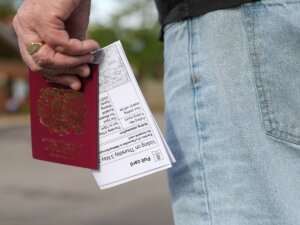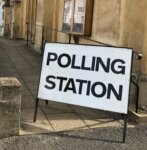Local Elections 2023: Are the UK Government making it harder for young people to vote in the North East?
Written by Jamie Leadbitter on 11th May 2023
As part of the Elections Act 2022, people in England, Scotland and Wales are now required to provide photo ID when voting.

These IDs include passports and driving licenses. However it could be argued that not everybody has access to their passports and driving licenses, especially younger people.
The Conservative Government suggest that the new ID rules will prevent voter fraud, which is certainly a positive outcome of these changes. However, specific aspects of the law will undoubtedly increase the difficulty for young people to vote.
In comparison to the older generation who can use their “elderly travel cards” such as bus passes; student railcards and student ID’s aren’t permitted in the list of IDs provided by the government, which seems rather discriminatory to young people.
Some have speculated that the government have increased the difficulty for young people to vote due to the 2019 general election, which saw that 67% of Conservative voters were over 70 years old. Whereas 56% of Labour voters were between the ages of 18 and 24. Arguably showing that Conservatives fear the youth are more likely to vote elsewhere.
Furthermore, there are up to 3.5 million eligible voters in the UK who are without ID, suggesting that there will be a huge number of people turned away from polling stations.

In the 2019 general election, there was a turnout of 64.2% in the North East, which is a number that is average for the last decade. With the new voter ID restrictions being in place, there is a high chance this number will decrease.
Grace, an 18 year old student at the University of Newcastle speaks about the new Voter ID law.
Do you think the government are enhancing the difficulty for young people to vote? Tweet us at @sparksunderland







